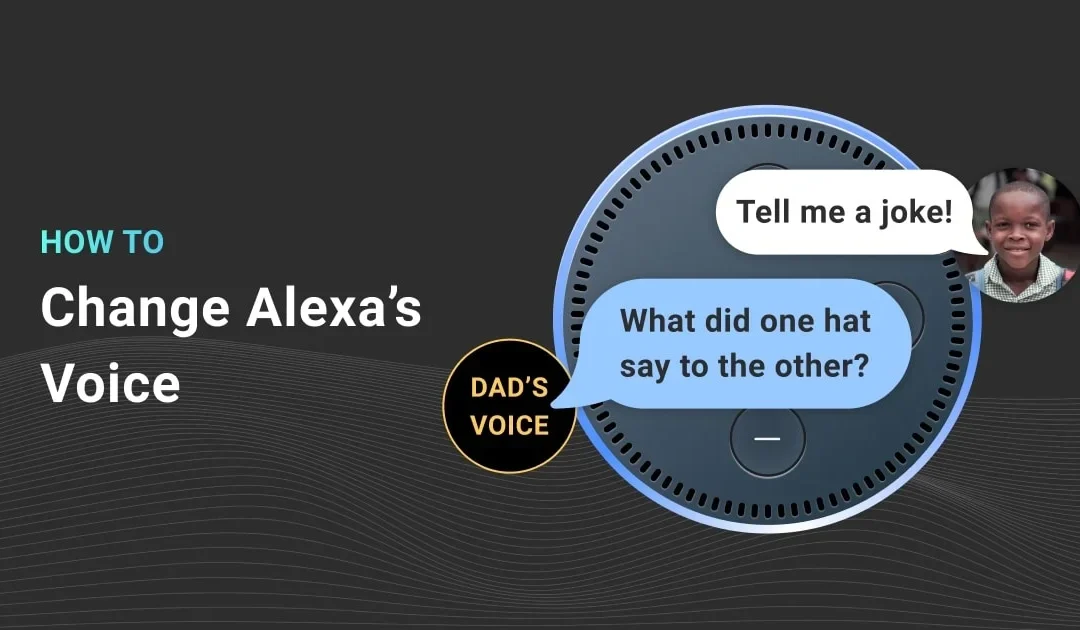How Voice Technology Is Revolutionising the Industry
While most people think of using their voice-enabled devices to easily do a web search with Siri or Google Assistant, or to ask Alexa for the day’s weather forecast or to control the smart devices in their homes, the healthcare sector is also being transformed by the emerging use of voice technology, to the benefit of both physicians and patients.
However, when it comes to adopting voice technology in the healthcare field, many myths abound, which can inhibit the widespread adoption of voice assistants.
Myth 1: “AI applications & chatbots will destroy jobs.”
With the advent of new technologies such as AI and machine learning, there is a common fear among healthcare professionals regarding whether their implementation would result in a potential loss of jobs. A study by consulting group Gartner (https://www.gartner.com/newsroom/id/3837763) proves that such fears not completely well-founded. By 2020, Gartner predicts that AI will generate 2.3 million jobs, well exceeding the 1.8 million that it will eradicate. The healthcare industry is likely to be one of the biggest beneficiaries of this job-creation curve, says Gartner.
According to the AMN Healthcare Clinical Workforce Survey (https://www.amnhealthcare.com/industry-research/2147484673/1033/), 78% of those surveyed note a physician shortage, 66% note a shortage of nurses, 50% note a shortage of nurse practitioners and physician assistants, and 43% note a shortage of allied healthcare professionals.
This data suggests that the fear of job loss should not be an issue in the healthcare sector. AI-based voice assistants and chatbots can essentially help resolve such problems while creating meaningful jobs and reducing rampant burnout, thereby enabling healthcare professionals to retain their jobs. In addition, AI augmentation within healthcare will allow healthcare professionals to focus on patient care.
Myth 2: “Voice assistants will not be as effective as healthcare professionals.”
It all started with Apple’s Siri in 2011, who was able to understand and respond to questions or commands. In those early days, Siri did not always function properly, and the technology was only rated as 83% accurate.
Natural Language Processing (NLP) has advanced over the years and has been revolutionizing voice assistants in terms of their accuracy. According toresearch analyst and venture capitalist Mary Meeker’s annual Internet Trends Report, Google’s machine learning-backed voice recognition — as of May 2017 — had achieved a 95%-word accuracy rate for the English language. That current rate also happens to be the threshold for human accuracy.
Google Assistant is better at understanding and answering questions than any of its rivals, according to a new test by Loup Ventures. The venture capital firm found that Google answered 85.5% correctly. Siri came in second place with 78.5%, followed by Alexa with 61.4% and Cortana with 52.4%.
Despite this myth, millions of those devices have already found their way into hospitals such as Beth Israel Deaconess Medical Center in Boston, Northwell Health in New York, the Commonwealth Care Alliance in Boston, and Libertana Home Health in Los Angeles.
Myth 3: “Patients inside a hospital will not see any benefit.”
These days, doctors seem to be more focused on entering data on their computers than in spending quality time and making the necessary eye contact with their patients. Medical professionals study medicine, not technology. Documentation or data entry is certainly not something that highly qualified medical staff or providers enjoy working on, but it is a necessary task in any clinic or hospital.
Providers have shown more interest in adopting these devices, particularly when they allow them to spend less time on documentation. They have been able to reduce clicks on electronic medical records (EMRs) by the hundreds. The University of Pittsburgh Medical Center has also seen the difference made by using these voice-enabled devices to augment the work of medical staff and physicians, thereby enabling them to focus on their patients and make eye contact while talking to them.
A 2018 conference by Boston Children’s Hospital also shed light on some of the hospitals who have accepted voice-based application. They have seen these applications reduce the time spent on documentation alone by more than 20%, which suggests 2 hours or more of time saved.
Patients, too, do benefit from the use of voice-based applications. The most advanced usage of voice technology for patients is at their bedside — for example, when patients are not able to reach staff in time to get the care needed, AI enabled devices would allow them to receive care more quickly.
Myth 4: “People feel no empathy towards voice devices and those who are technology-challenged, such as the elderly, will reject it.”
Here is a story from a TED talk
https://www.ted.com/talks/kate_darling_why_we_have_an_emotional_connection_to_robots/up-next by Kate Darling, an expert in robot ethics at the Massachusetts Institute of Technology Media Lab:
“In 2007, the Washington Post reported that the United States military was testing a robot that defused landmines. It was shaped like a stick insect and would walk around a minefield on its legs. Every time it stepped on a mine, one of the legs would blow up. It would continue walking as the other legs blew up more mines. The colonel in charge of this testing exercise ended up calling it off because he felt it too inhumane to watch this damaged robot drag itself along the minefield. Now, what would cause a hardened military officer and someone like us to have this response to a robot?”
The story above and much additional research shows that humans are starting to develop feelings towards robots even though machines may not have feelings towards us. Older patients who feel isolated are seeing even more benefits with these voice-activated devices. In fact, the adoption rate is higher among the older populations.
Myth 5: “Hospitals are traditional and will take years to bring new innovations. Moreover, HIPAA regulations would prevent its adoption.”
Historically, providers have been slow to adopt new technologies even when new technologies are known to benefit patients. For example, even though pagers and faxes are no longer used in other industries, they continue to be used extensively in healthcare.
However, AI & voice assistants already seem to be more quickly adopted than are any other healthcare technology. A survey by Intel and Convergys believes widespread adoption is less than 5 years away. It also states that 37% are already using AI within their organizations in one form or another and that 77% are leveraging AI for clinical applications. In line with the above statistics, it is predicted that more than 900,000 smart speakers will be used in healthcare by 2021.
It is true that Amazon Alexa or Google Home by themselves are not HIPAA compliant. This means that even though these devices can be trained to provide advice or to help with documentation, they cannot store a patient’s health data.
This has not stopped companies from innovating or hospitals from adopting voice powered devices which are HIPAA compliant or which have been incorporated to be HIPAA compliant. Companies such as Orbita have safeguards in place with processes, policies, and technology to ensure compliance and security of patients’ health data. They are also making efforts to anonymize data related to patients which must pass through these devices. Hospitals such as Thomas Jefferson Hospital in Philadelphia have already created a completely HIPAA compliant device
What does this mean for healthcare?
AI-augmented voice technology is certainly the wave of the future in the healthcare sector. Although it is still in its early stages, there are early adopters, such as Boston Children’s Hospital, Thomas Jefferson University and Jefferson Health, Cigna and Novartis, who are leading the way and providing strong case studies which can encourage its adoption by other clinics, hospitals and health systems. The dispelling of these common myths around this technology and due to the increasing familiarity with Alexa and Google-Home like devices, both patients and physicians are eager to experience the benefits that AI can provide.





